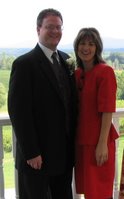Is This Really The Gospel?
__________________________________________________________________
This is the gospel of Jesus Christ: salvation is by sola fide--through faith alone; sola gratia--by grace alone; solus Christus--in Christ alone; sola scriptura--according to the Word alone; soli Deo gloria -- to the glory of God alone (Rom. 3:21-26; Rom. 10:9-10; Luke 24:46-49). This is the only good news; the narrow way that leads to eternal life. Anything less, no matter how sincere, is just a cheap watered down substitute.
















 I leant upon a coppice gate
I leant upon a coppice gate



